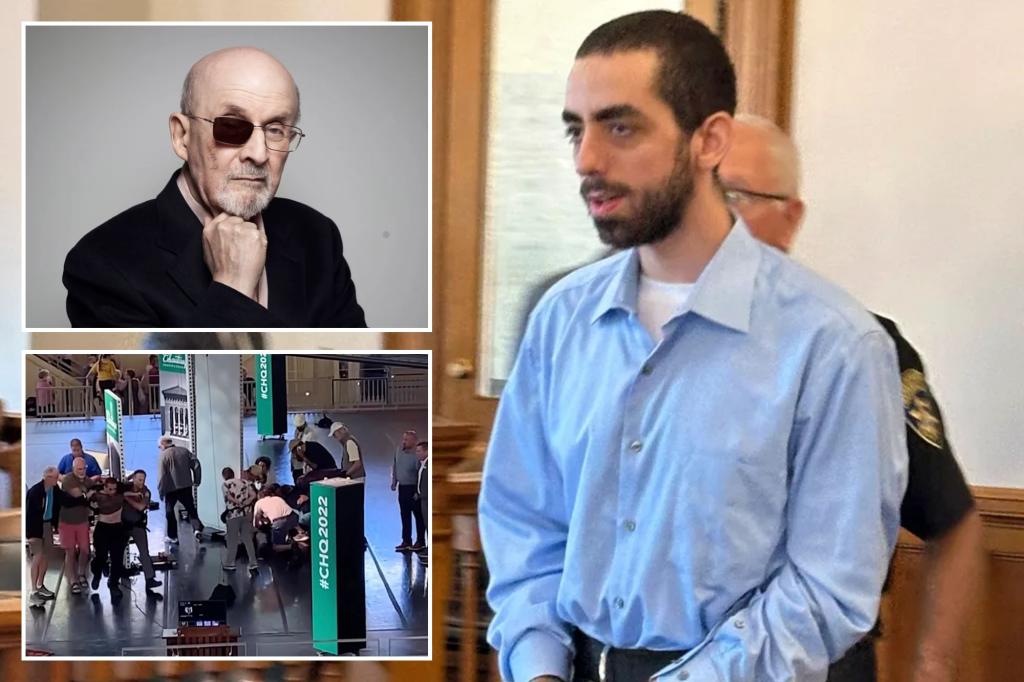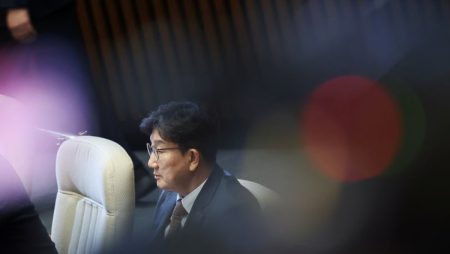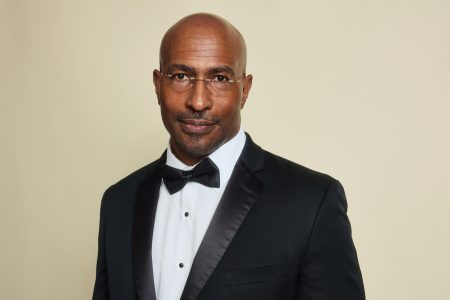The trial of Hadi Matar, the man accused of attempting to murder renowned author Salman Rushdie, commenced in Mayville, New York, with the crucial process of jury selection. Matar, a 26-year-old New Jersey resident, entered the courtroom under heavy police escort, handcuffed and clad in a blue shirt and black pants. The click of cameras documented his arrival as he took his seat beside his legal team. Judge David Foley presided over the proceedings and informed the court that the trial, once the jury was impaneled, was expected to last between one and two weeks. The incident that led to this trial unfolded in August 2022 at the Chautauqua Institution, a tranquil setting that unexpectedly became the scene of a violent attack.
The prosecution’s case hinges on the testimony of Salman Rushdie himself, who is expected to recount the harrowing moments of the attack. Rushdie, the author of the controversial novel “The Satanic Verses,” was on stage at a literary event when Matar allegedly rushed him, stabbing him repeatedly. The attack left the 77-year-old author with severe injuries, including the loss of sight in one eye and damage to his liver and nerves. Henry Reese, the moderator of the event, also sustained injuries in the attack. Matar, held without bail since his arrest, has pleaded not guilty to charges of attempted murder and assault.
Following the attack, Matar granted an exclusive interview to The Post from jail, where he expressed his disdain for Rushdie, labeling him a “bad person.” Matar’s hostility stemmed from Rushdie’s perceived attack on Islam and its belief system, specifically referencing “The Satanic Verses,” a book considered blasphemous by many Muslims for its portrayal of the Prophet Muhammad. This book had placed Rushdie in the crosshairs of religious extremists for decades, beginning in 1989 when Ayatollah Ruhollah Khomeini, the late Supreme Leader of Iran, issued a fatwa calling for Rushdie’s death and placing a $3 million bounty on his head.
This fatwa forced Rushdie into hiding for years, living under the constant threat of assassination. He eventually emerged from self-imposed exile in the 1990s, cautiously resuming public appearances and speaking engagements, including the fateful event at the Chautauqua Institution. Matar’s attack marked a resurgence of violence related to the decades-old controversy surrounding “The Satanic Verses,” shattering the relative calm Rushdie had managed to establish in his life. The long shadow of the fatwa continued to loom large, underscoring the lasting impact of religious extremism and the enduring power of words.
The trial itself has encountered several delays, adding to the complexity and anticipation surrounding the proceedings. Matar previously rejected a plea deal that would have resulted in a prison sentence of 20 years to life, a significant reduction from the potential 25-year maximum sentence. This decision suggests Matar’s unwillingness to admit guilt or negotiate a compromise, signaling a potentially protracted and contentious legal battle. Matar, an American citizen with dual Lebanese citizenship, maintains that he acted alone and claims to have only read “a couple of pages” of “The Satanic Verses.” This claim raises questions about the depth of his understanding of the book and the motivations behind his violent act.
Beyond the state charges, Matar also faces federal terrorism charges in Buffalo, New York, to which he has also pleaded not guilty. These federal charges elevate the case beyond a simple act of violence, framing it within the larger context of international terrorism and the ongoing threats against Rushdie. The attack and subsequent trial have brought the issue of freedom of expression back into sharp focus. Rushdie, a staunch advocate for free speech, has continued to write and speak out despite the threats against him. A year after the attack, he published “Knife: Meditations After an Attempted Murder,” a reflection on the near-fatal experience and his remarkable resilience.
The trial of Hadi Matar carries significant weight, not just for the individuals involved, but also for the broader principles of free speech and the ongoing fight against religious extremism. The outcome will have ramifications for the future of literary freedom and the security of authors who dare to challenge established beliefs. The world watches as the legal process unfolds, hoping for justice for Salman Rushdie and a reaffirmation of the fundamental right to express oneself without fear of violence. The trial serves as a stark reminder of the enduring power of words, both to inspire and to incite, and the importance of protecting those who wield them in the face of intolerance and extremism.










